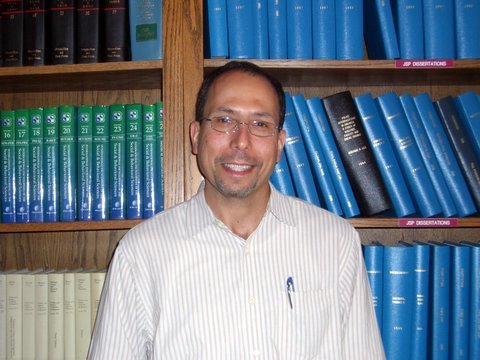Which Way from the New Deal?
Both his fans and his critics often see Barack Obama as a political leader who could produce a new New Deal. One of those critics, economics and law professor Paul Rubin, who also serves as an adviser to the McCain campaign puts the negative case strongly in an oped in today's Wall Street Journal.
n 1932, Democrat Franklin Delano Roosevelt was elected president as the nation was heading into a severe recession. The stock market had crashed in 1929, the world's economy was slowing down, and all economic indicators in the U.S. showed signs of trouble.
The new president's response was to restructure the economy with the New Deal -- an expansion of the role of government once unimaginable in America. We now know that FDR's policies likely prolonged the Great Depression because the economy never fully recovered in the 1930s, and actually got worse in the latter half of the decade. And we know that FDR got away with it (winning election four times) by blaming his predecessor, Herbert Hoover, for crashing the economy in the first place.
Obama, who Rubin characterizes as among the most liberal members of the Senate, would, aided by a stronger and more liberal Democratic majority in Congress, would renew the New Deal.
But if the coming wave of new regulation from an Obama administration is harmful to the economy, Mr. Obama will take a page from FDR's playbook. He'll blame Republicans for having caused the market crash in the first place, and so escape blame for the consequences of his policies. It worked for FDR and, so far in this campaign, blaming Republicans and George W. Bush has worked for Mr. Obama.
Democrats draw their political power from trial lawyers, unions, government bureaucrats, environmentalists, and, perhaps, my liberal colleagues in academia. All of these voting blocs seem to favor a larger, more intrusive government. If things proceed as they now appear likely to, we can expect major changes in policies that benefit these groups.
If those of us who favor free markets for the freedom and prosperity they bring are right, the political system may soon put our economy on track for a catastrophe.
Professor Rubin's article, and his academic webpage offer an interesting glimmer into what the legal theory of a McCain administration might look like. In the oped, he blames the New Deal for making the Depression (which he calls a recession) worst, and expresses sympathy for the view that many of its innovations are probably unconstitutional. In his scholarship, Professor Rubin has published papers claiming to show that capital punishment deters homicides and that reducing the generosity of the civil justice system reduces accidents.
As I will explore in subsequent posts, the pro-Obama side in its own way promises a new kind of New Deal that would rely much less on the kinds of agencies and regulations that economists like Professor Rubin have often questioned the efficacy of. The "Renew Deal" (as law professor Orly Lobel cleverly and presciently dubbed it in 2005) will look much different than that served up by FDR (and for which so many may feel nostalgia during the present financial crisis).

